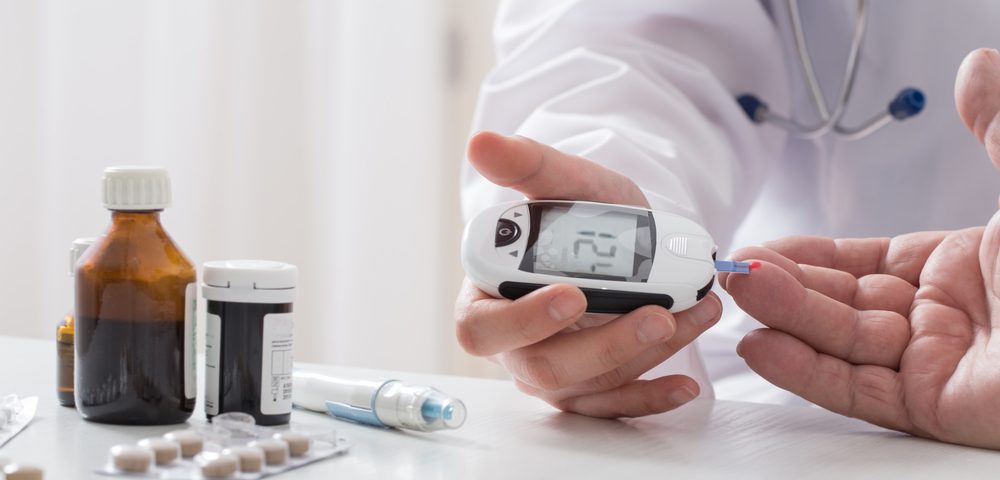Diabetes may predict high-risk prostate cancer in men with benign prostatic hyperplasia (BPH) undergoing treatment with Holmium laser enucleation of the prostate, according to a new Japanese study. Known as HoLEP, this procedure is a minimally invasive treatment for BPH that replaces the standard transurethral resection of the prostate (TURP).
The study, “Comorbidities as predictors of incidental prostate cancer after Holmium laser enucleation of the prostate: diabetes and high-risk cancer,“ appeared in the journal The Aging Male.
HoLEP, a procedure used to treat symptomatic men with BPH, can detect prostate cancer can be detected upon examination. Previous studies showed that doctors discovered incidental prostate cancer in 5 to 13 percent of patients who had undergone HoLEP. The more traditional TURP sometimes causes complications such as bleeding, urinary incontinence and erectile dysfunction. With HoLEP, a surgeon uses the laser to carefully remove excess prostate tissue obstructing the urethra.
Several clinical factors including prostate-specific antigen and prostate volume have previously been suggested as predictors of incidental prostate cancer after HoLEP.
Authors in this newest study investigated what other common comorbidities associated with BPH — including hypertension, diabetes and dyslipidemia (abnormal amount of lipids in the blood) — may work as predictors of incidental prostate cancer in men undergoing HoLEP. They studied a group of 688 BPH men at Tokyo’s St. Luke’s International Hospital who had undergone treatment with HoLEP between July 2008 and September 2014.
While authors found no significant factors for overall prostate cancers, they observed that 31 percent of men with high-risk prostate cancer also had diabetes, compared to only 13 percent of those with BPH. Diabetes was actually found to be an independent predictor of high-risk cancer.
Overall, “none of the tested comorbidities, including hypertension, diabetes, and dyslipidemia, were significant predictors of incidental prostate cancer after HoLEP,” researchers wrote. “However, we found that diabetes was significantly associated with high-risk cancer. Our findings suggest that diabetes may be an important predictor of the presence of high-risk prostate cancer in men with BPH undergoing HoLEP.”

